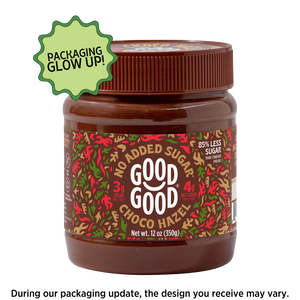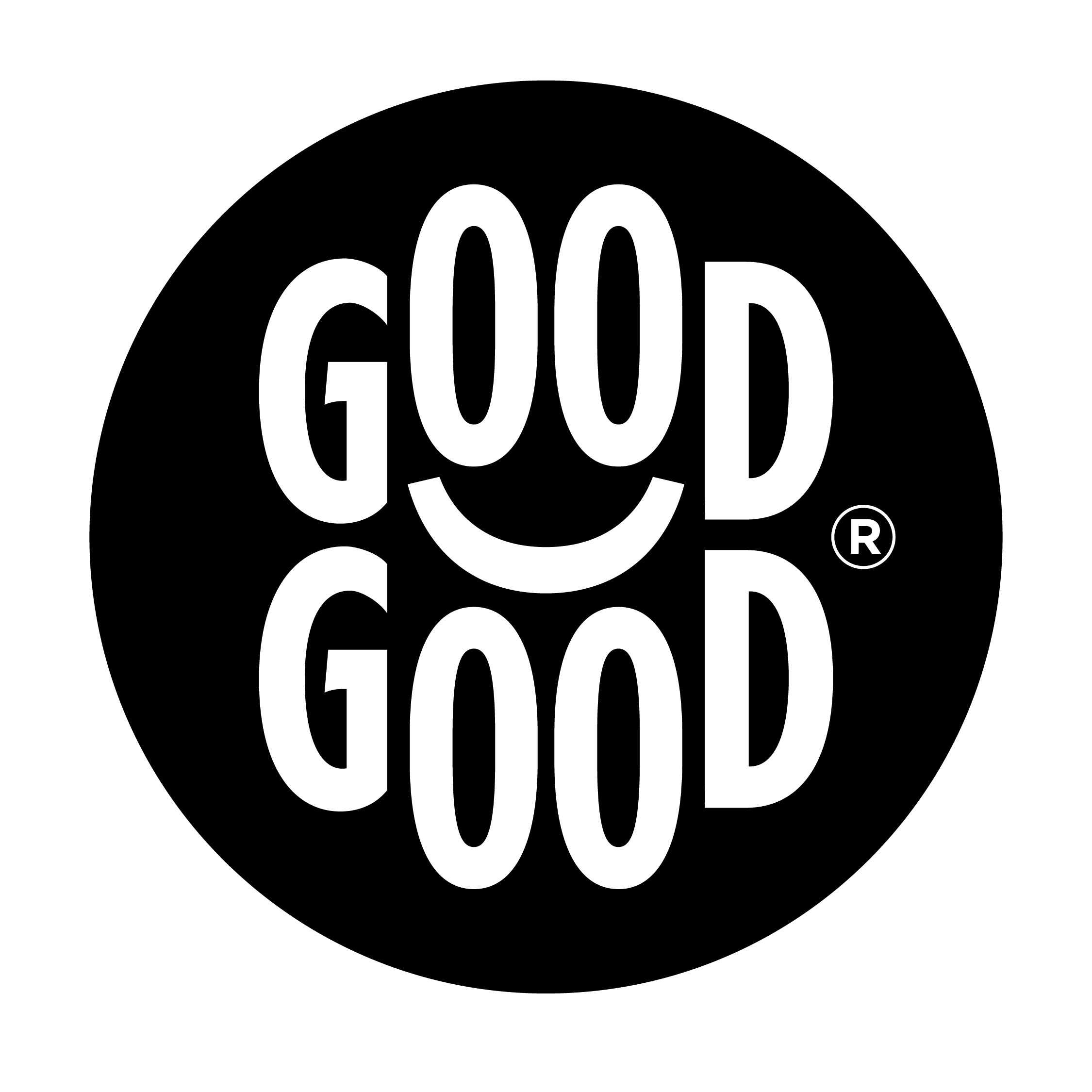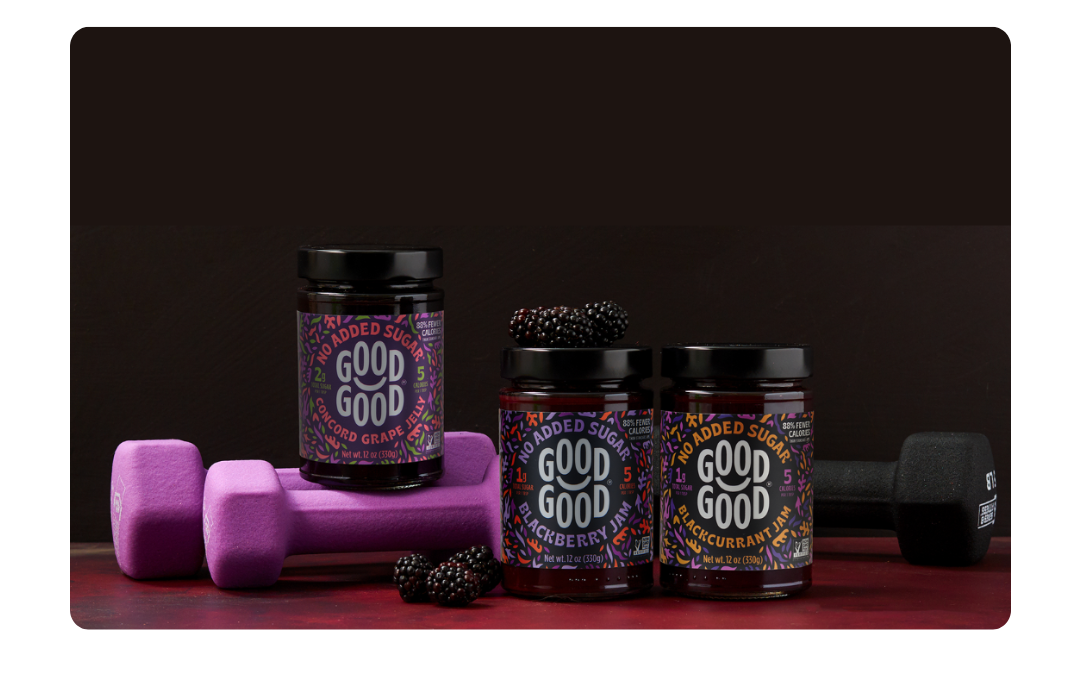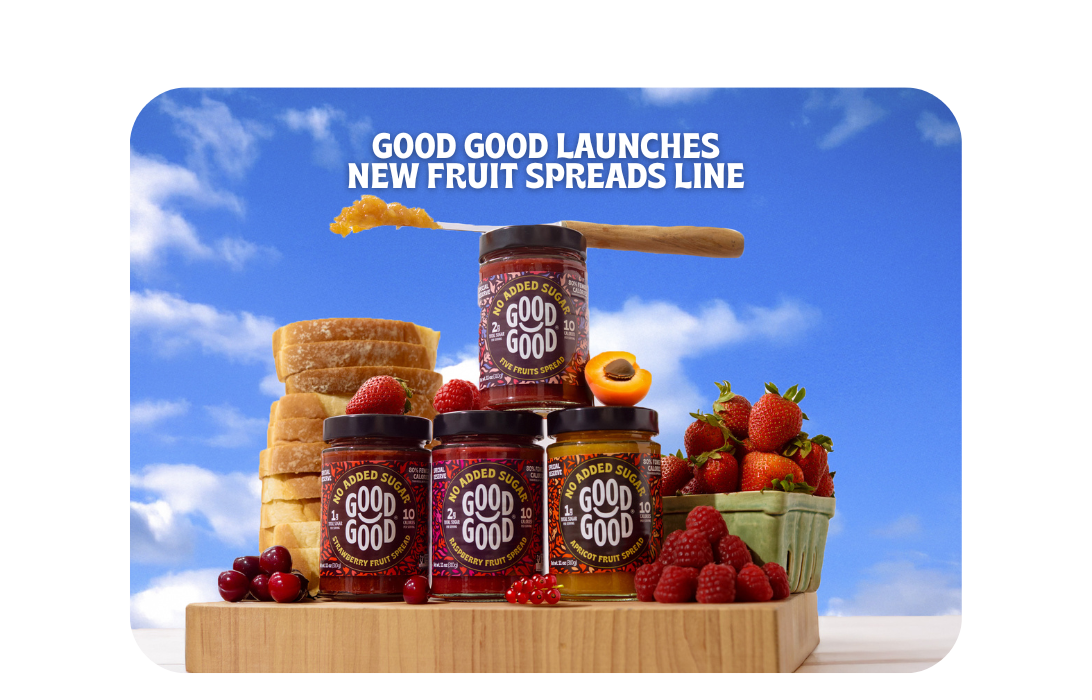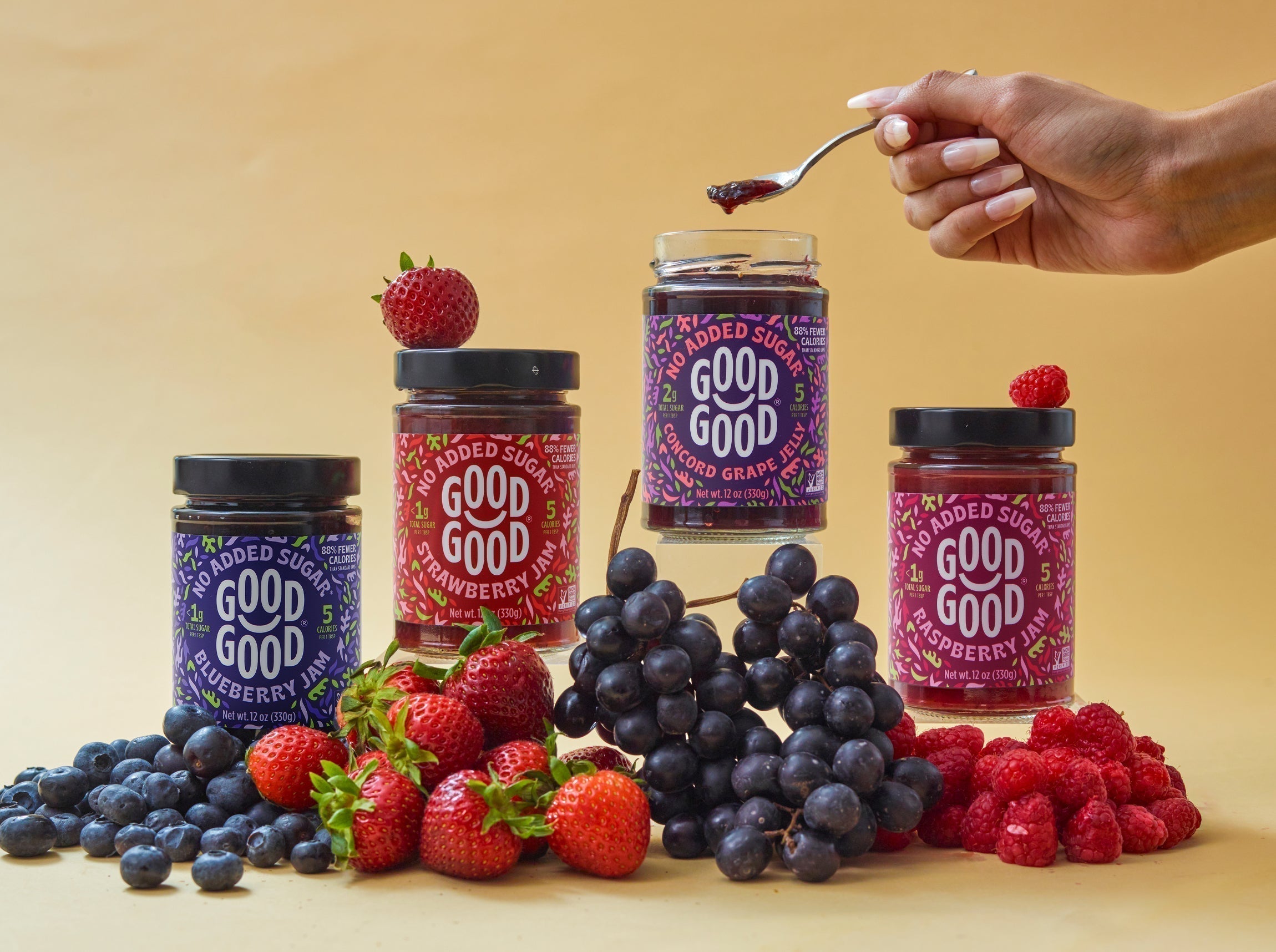Ever pondered the question, Is jam vegan? We at GOOD GOOD are here to clear the air: Yes, most jams are vegan, but there's more to the story.
As you journey through this article, you'll not only discover the vegan status of jams but also delve into the intricate world of jellies, preserves, and their ingredients.
Ever wondered if jelly vegan options are as widespread as jam? We've got the answers.
From understanding the role of pectin and gelatin to exploring the shelf life of vegan spreads, we're here to guide you. Dive into the sweet world with us at GOOD GOOD!
What this article covers:- What Is Jam?
- When Is Jam Not Vegan?
- How Long Does Vegan Jam or Plant-Based Jelly Last?
- What's the Difference Between Jelly and Jam?
What Is Jam?
Jam is a flavorful concoction made primarily from whole or cut fruit, cooked with sugar until it achieves a thickened, jammy consistency. The texture and firmness of the jam depend on the fruit's natural pectin content or any additional pectin introduced during the cooking process.
At GOOD GOOD, we adore this sweet spread, and we're here to share the scoop.
Depending on the fruit and its preparation, the final jam can range from completely smooth to chunky with jammy fruit pieces. It's always designed to be firm enough for spreading yet soft enough to spoon.
Now, while jams are typically made from fruits like berries, stone fruits, and even tomatoes, the choice of fruit and its peak seasonality play a significant role in the jam's flavor and color.
For instance, stone fruits like apricots or peaches are classic choices, but berries and cherries are equally delightful. The key is to pick fruits during their prime season to capture the best flavor and vibrant color.
So, the next time you spread some peanut butter and jelly vegan style on your toast or swirl it into your yogurt, remember the art and science behind this delightful preserve.
When Is Jam Not Vegan?
At GOOD GOOD, our extensive research has found that the answer to this question lies in the ingredients.
Jam is typically vegan-friendly, especially when it's fruit-based. However, there are certain ingredients that can make it non-vegan.

What Is Pectin?
Pectin is a carbohydrate found in the skins and cell walls of fruits. It acts as a binder in jams, giving them their characteristic gel-like consistency. Most jams use natural fruit pectin, which is entirely vegan.
It's a natural substance and plays a crucial role in achieving the desired texture in vegan jams.
What Is Gelatin?
Gelatin, on the other hand, is an ingredient that can make a jam non-vegan. It's used to help the jam gel together. Derived from animal bones, gelatin is not suitable for a vegan diet. Some jams might contain gelatin, so it's essential to check the ingredient list if you're following a strict vegan lifestyle.
Other non-vegan ingredients that might be found in jams include honey and certain e-numbers used for flavoring or coloring, such as carmine.
How Long Does Vegan Jam or Plant-Based Jelly Last?
According to the USDA, unopened homemade jam that's been preserved using the water bath or pressure canning method should ideally be consumed within one year for the best nutritional value. However, if the recipe specifies a longer shelf life, it can be extended. Once opened, homemade jam can last for up to three months in the fridge.
Factors that influence the shelf life of homemade jam include the type of fruit used, the amount of sugar, and the preservation method. Proper storage is crucial. It's best to store the jam in a cool, dry place and always use clean utensils when handling it to prevent contamination. By following these guidelines, you can enjoy your homemade jam for months after it's made.
If you're looking to store homemade jam without canning, it can be kept in the fridge for up to 3 months. For those wanting to extend the shelf life, freezing is an option, allowing the jam to last up to a year.
However, it's essential to note that homemade jam that hasn't been canned may not be as shelf-stable as store-bought jams and might spoil more quickly.
While vegan jam or plant-based jelly is a delightful addition to any pantry, it's essential to store it properly to ensure freshness and safety. And if you're looking for no-added-sugar options, don't forget to explore our range at GOOD GOOD.

What's the Difference Between Jelly and Jam?
The difference between jelly and jam lies in their ingredients and the way they are prepared. Both are sweet, fruit-based spreads, but they differ in texture, appearance, and the proportions of their shared ingredients.
At GOOD GOOD, we often find ourselves explaining the nuances between different fruit spreads. So, let's clear the air on this one:
Jelly
Jellies are made primarily from fruit or vegetable juice. They're characterized by their clear appearance and a firm texture that holds their shape. The juice is extracted by boiling crushed fruit or fruit pieces in water until soft, after which the peels and pulp are separated from the juice by straining them. This ensures a clear appearance. Jellies can be prepared with or without adding pectin, but most recipes include it to ensure the right gel consistency. Commercial pectin is usually derived from apples and citrus fruits.
Jam
Jams, on the other hand, are made from crushed or ground fruit, resulting in a thicker spread that holds its shape but is less firm than jellies. Unlike jelly, jam is not clear, and you may find fruit chunks or particles dispersed throughout it. Jams can be prepared with or without added pectin. However, if pectin isn't added, it's common to include some underripe fruits, as these contain more pectin than ripe ones.
Is Jam or Jelly More Likely to Be Vegan?
When it comes to vegan-friendly options, jelly is often the safer bet. Jelly is typically made from fruit juice, boiled down, and then combined with sugar and pectin. Most jellies have a simple ingredient list, with just fruit juice and pectin, which is derived from fruit.
On the other hand, jams, while similar in ingredients to jellies, might sometimes contain non-vegan ingredients like gelatin. Gelatin is a thickening agent derived from animals, making it non-vegan. So, while many jams are vegan, it's essential to read the label carefully before making a purchase.
In short, while both jams and jellies are delightful additions to any breakfast table or dessert, it's crucial to be aware of their ingredients, especially if you're following a vegan lifestyle.
Conclusion
In wrapping up our sweet exploration, we've delved deep into the world of jams, jellies, and their vegan counterparts. So, is jam vegan? Most often, yes, but always check the label for non-vegan ingredients like gelatin.
For those seeking healthier alternatives without compromising on taste, our 99% sugar free jelly is a delightful choice.
At GOOD GOOD, we're committed to offering delicious and nutritious options for every palate. So, why wait?
Dive into our range and elevate your breakfast or dessert game today. Taste the goodness with GOOD GOOD!
If you found this article helpful, check out these related posts:
- Is Grape Jelly Vegan
- Is Strawberry Jelly Vegan
- Best Raspberry Jam
- Best Fig Jam
- Best Blueberry Jam
- Best Apricot Jam
- Best Cherry Jam
- Fig Jam Alternative
- Is Jam Healthy
- Healthy Jam Recipe
- Is Toast and Jelly Healthy
- Healthy Jelly for Toddlers
- Best Strawberry Jam
- Best Strawberry Freezer Jam
- Is Strawberry Jam Healthy?





![[title] Reforestation Donation by Dollar Donation Club sold by US GOOD GOOD®](http://goodgoodbrand.com/cdn/shop/files/DollarDonationClubShopify_1_300x.jpg?v=1712681952)
